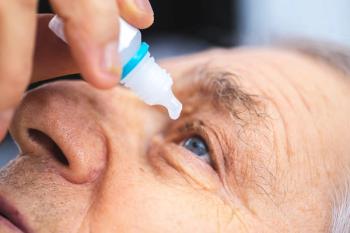
FTC sues 1-800 Contacts, but not for the reasons you think
Many in the optometric community think that the lawsuit was a long time coming, but the lawsuit does not address the community’s primary concern-patient safety.
Washington, DC-
The lawsuit alleges that 1-800 Contacts orchestrated and maintains a web of anticompetitive agreements with rival online contact lens retailers. These agreements allegedly suppress competition in certain online search advertising auctions and restrict truthful and non-misleading Internet advertising to customers.
The FTC claims these practices result in some customers paying higher retail prices for contact lenses.
Related:
According to the
“1-800 Contacts strongly disagrees with the FTC’s contention that our settlement agreements are anticompetitive,” 1-800 Contacts General Counsel Cindy Williams told Optometry Times. “Our settlement agreements were specifically designed to protect our intellectual property rights. “
The administrative trial is scheduled to begin April 11, 2017.
Following the lawsuit announcement, American Optometric Association (AOA) President Andrea Thau, OD, FAAO, FCOVD, DPNAP,
Related:
Last fall, the
Related:
The American Academy of Optometry chose not to comment on the lawsuit.
Lawsuit will not address patient safety
Many in the optometric community think that the lawsuit was a long time coming, but the lawsuit does not address the community’s primary concern-patient safety.
“First,” says Craig Steinberg, OD, JD, in Agoura Hills, CA, “understand that this lawsuit is not about selling contact lenses without a prescription. There may be a tendency for optometrists to jump to that conclusion because that’s what concerns them the most.”
Jeffry Sonsino, OD, FAAO, chair of the AOA Contact Lens and Cornea Section (CLCS), noted the irony in the situation because 1-800 Contacts has often accused others in the industry of anticompetitive behavior.
“It is quite interesting that 1-800 Contacts has falsely accused the AOA and contact lens manufacturers of anticompetitive practices while the whole time, according to the FTC, allegedly practicing anticompetitive practices itself,” he says.
However, Williams says 1-800 Contacts has a long history of advocating for increased competition and consumer rights, pointing to the company’s support of the Fairness to Contact Lens Consumers Act (FCLCA) of 2004 and its fight against contact lens manufacturers’ unilateral pricing polices (UPP), which she calls “price fixing.”
“1-800 Contacts strongly believes in a competitive contact lens marketplace and will continue to be a leading advocate for providing consumers with more choice, greater convenience, and lower prices,” she says.
What you can do
Dr. Steinberg says optometrists should not count on the FTC to make the changes necessary to protect patient health because its primary concern appears to be making sure consumers get the best price-not the best care. Instead, he encourages optometrists to support the AOA-backed
The bill would amend the FCLCA of 2004 to require contact lens retailers to provide a toll-free telephone number and email address that prescribers can use to ask questions about a seller’s prescription verification request.
In related news,
Related:
Dr. Sonsino says he hopes consumers ultimately hold the companies accountable for their bad behavior, calling the deal with Opternative an attempted to further skirt contact lens prescribing rules.
Newsletter
Want more insights like this? Subscribe to Optometry Times and get clinical pearls and practice tips delivered straight to your inbox.









































